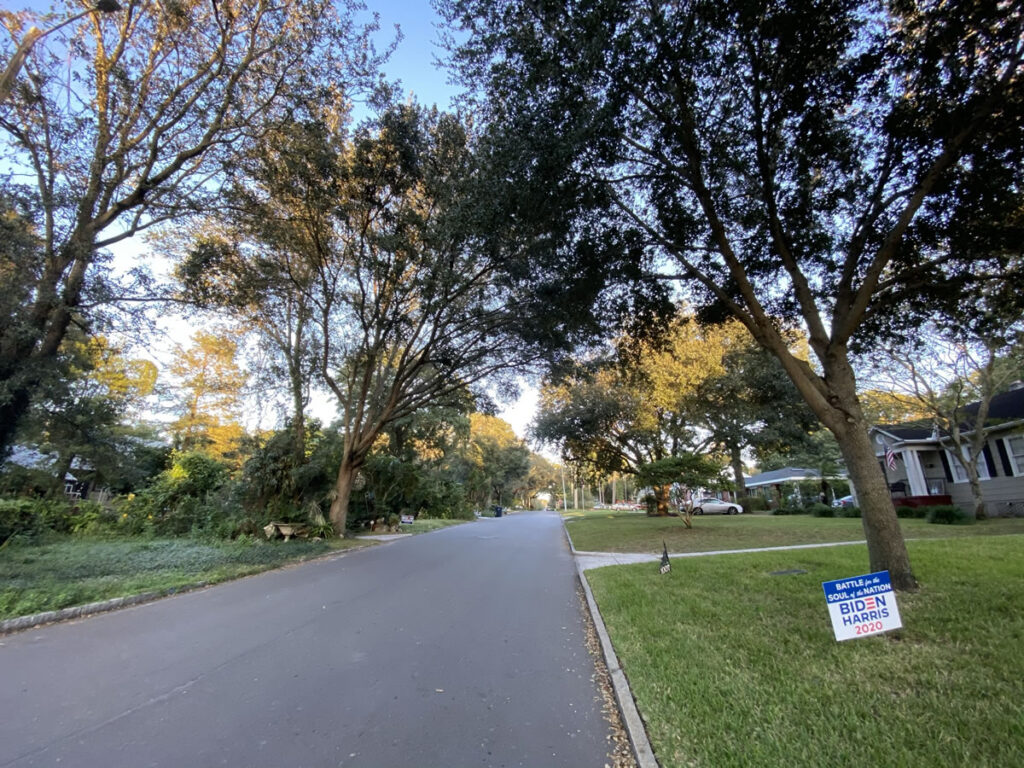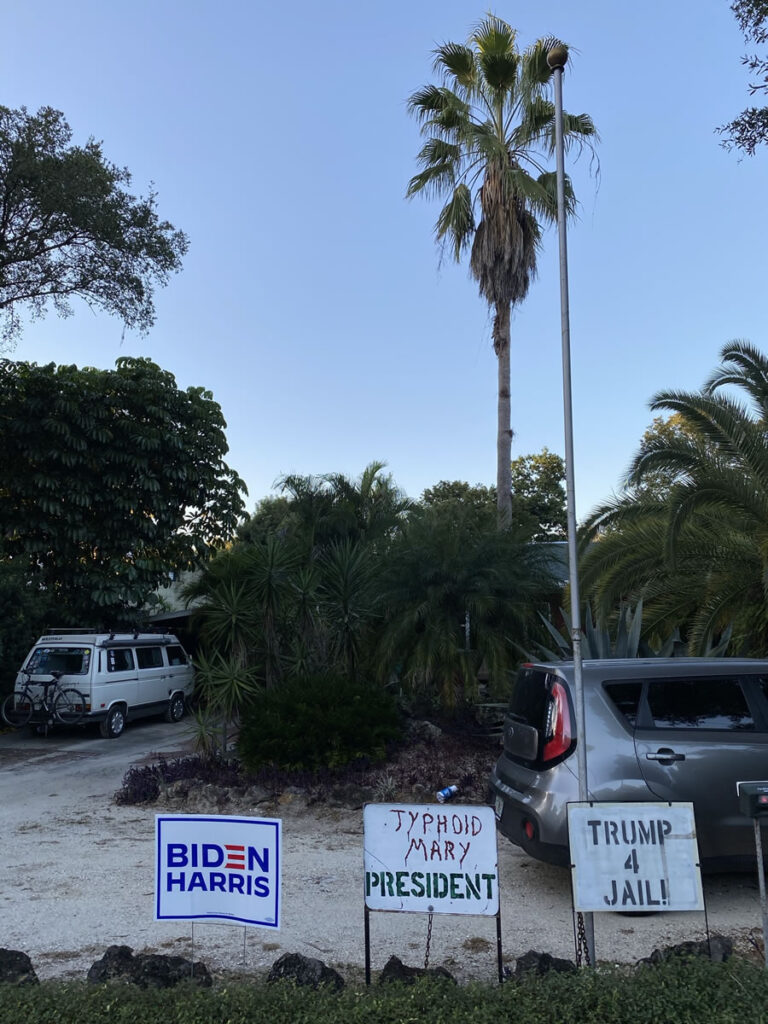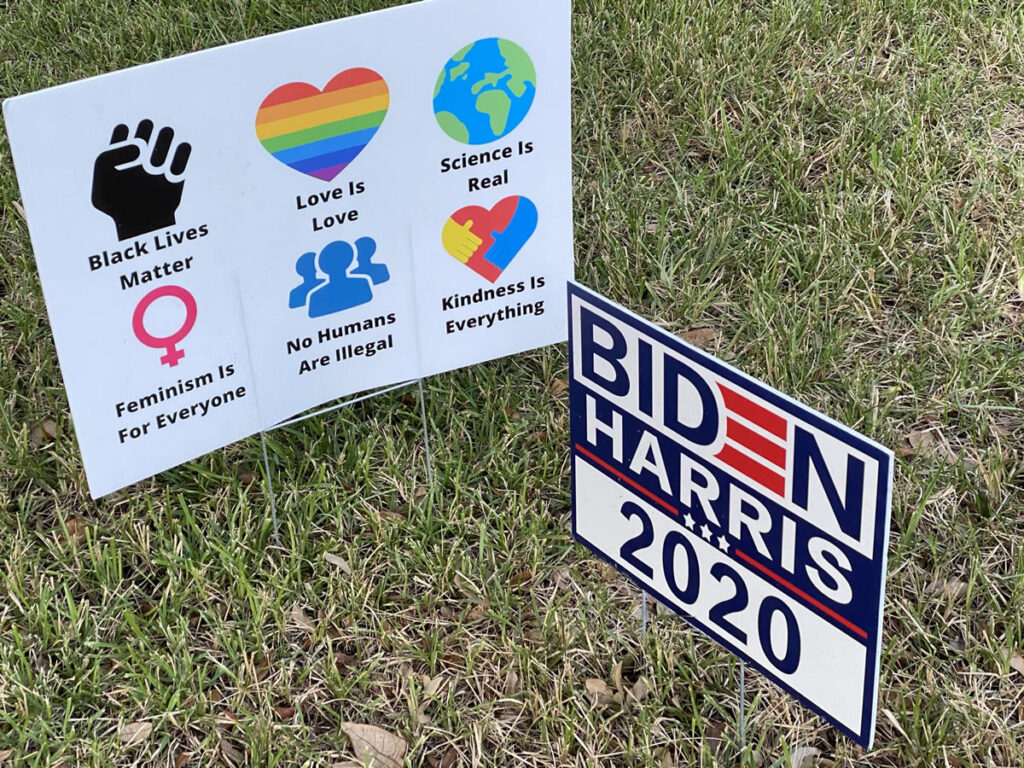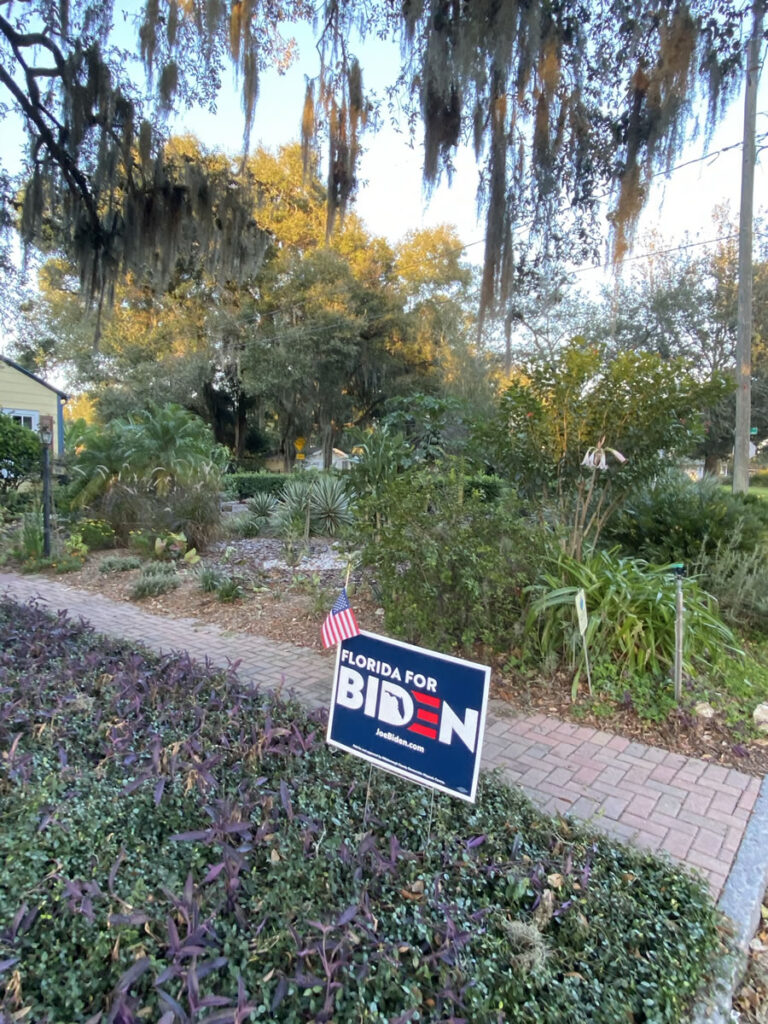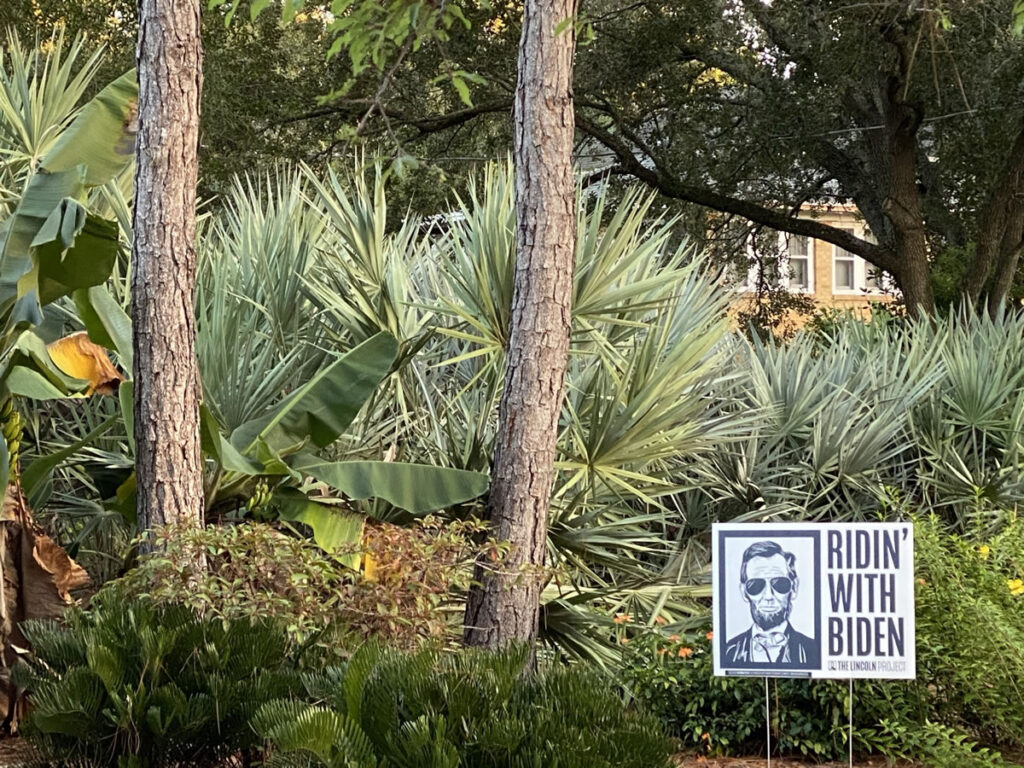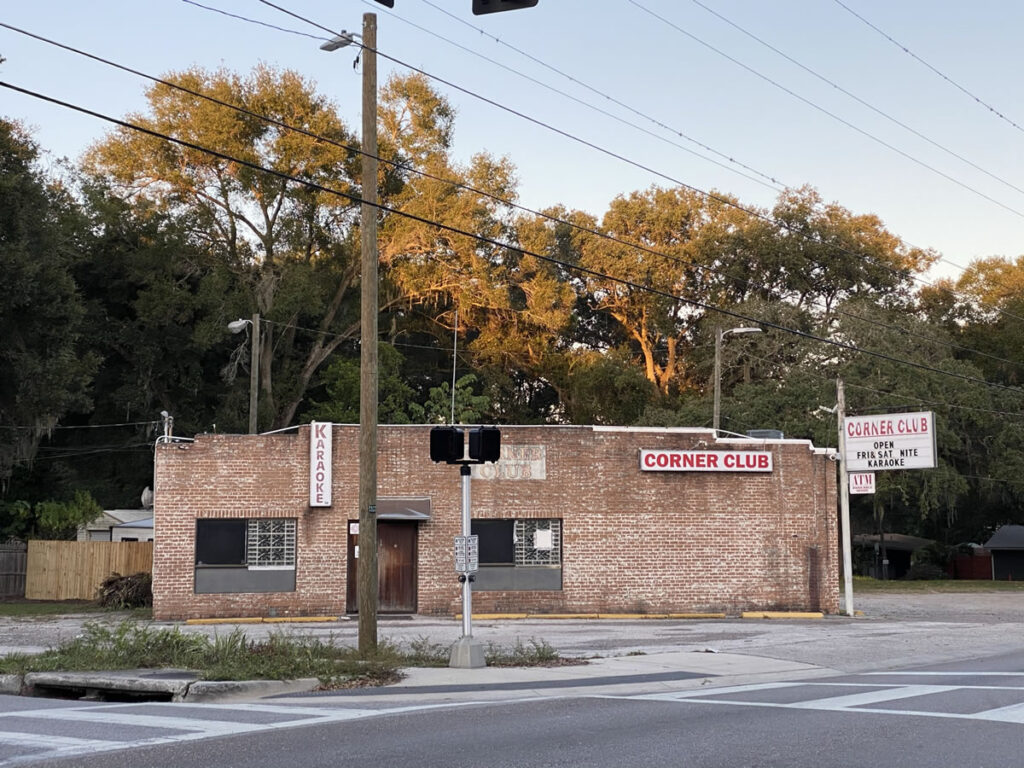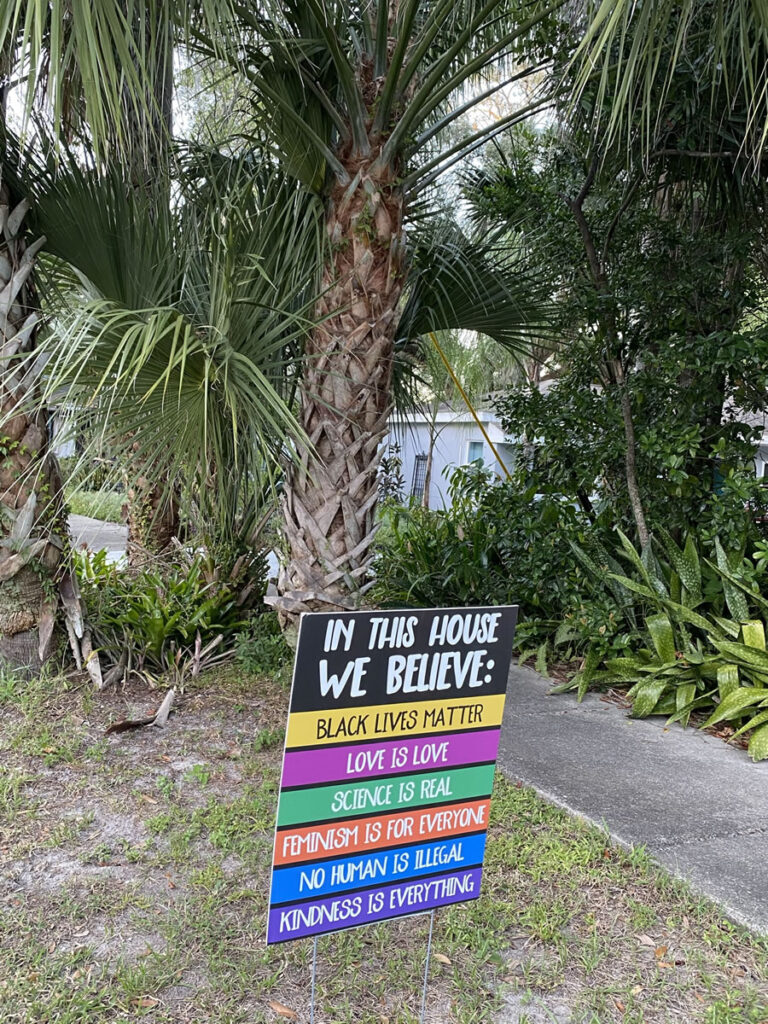Those looks: The realization sinks in, and the (admittedly thin) veneer of “fair and balanced” disappears.
Meme of the day
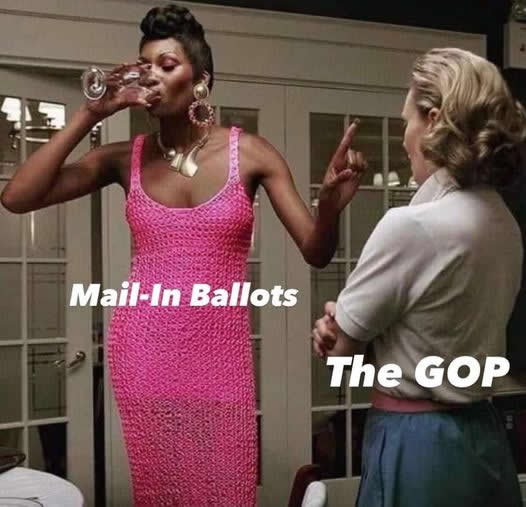
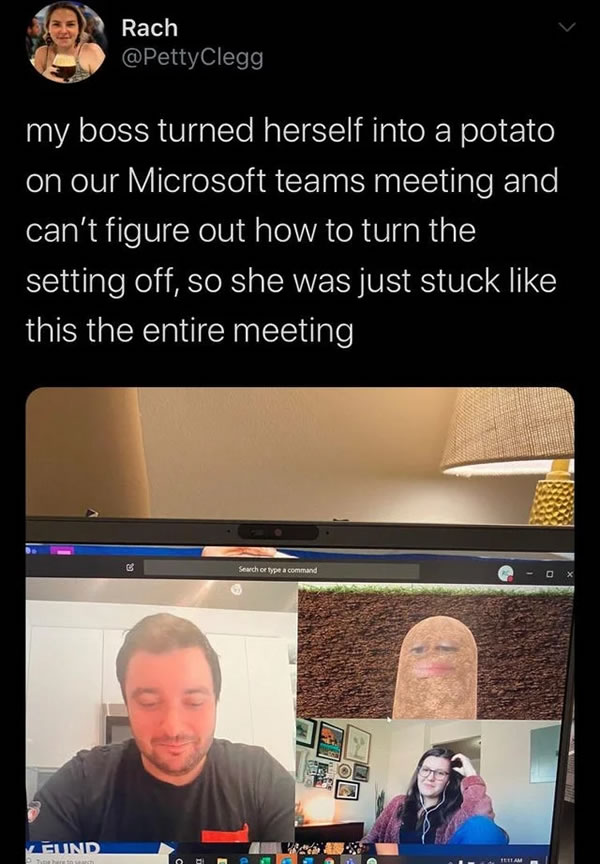
And now I’m checking to see if the videoconferencing app we use at Auth0 (where I work) has a potato filter.
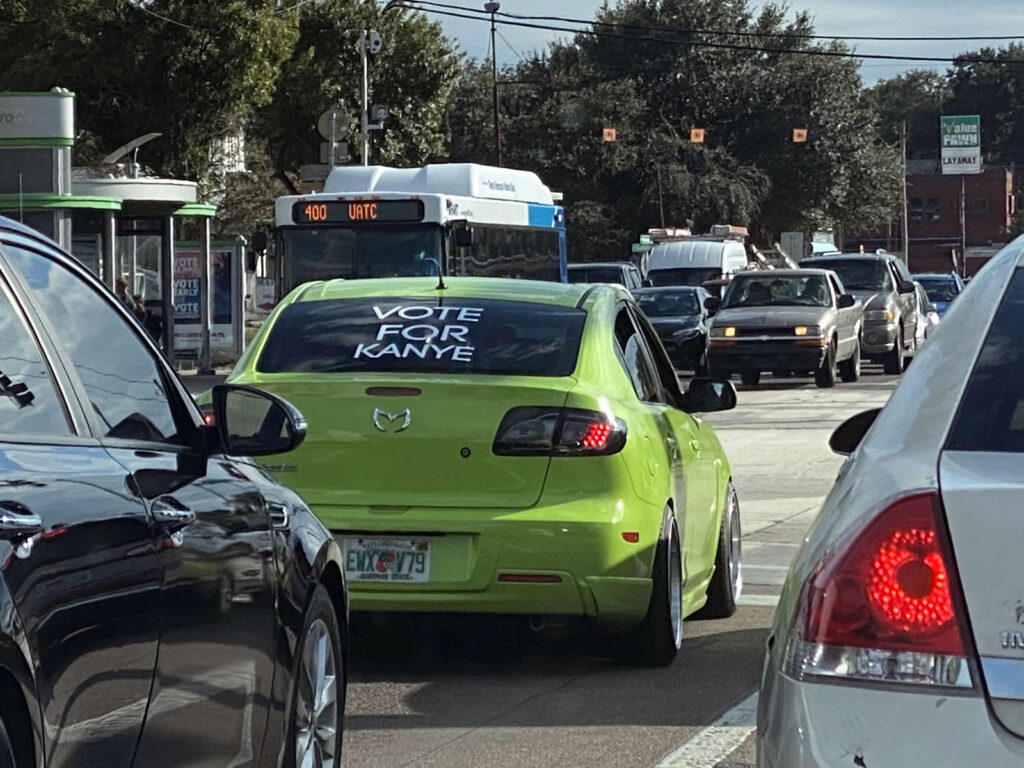
We saw this car on Saturday afternoon in Seminole Heights, going southbound on Nebraska.
Dude, hug your kid
Dude, hug your kid.
He’s stumping for you in places that are too small-time for you to go, and talking to press outlets that are too tiny to be worth your while. It looks like he’s trying to be a worthy son.
When he reaches to you for a hug, hug him.
And not in that creepy way you do with Ivanka. He’s your kid.
Yesterday’s bike ride
 We’ve undergoing a period of cooler temperatures here in Tampa — and by cooler, I mean 20°C / 70°F in the late afternoon — which made yesterday’s 10K bike ride (something I do five or six days a week, schedule and weather permitting) a very pleasant one. I took some photos while cycling through Riverbend and Seminole Heights.
We’ve undergoing a period of cooler temperatures here in Tampa — and by cooler, I mean 20°C / 70°F in the late afternoon — which made yesterday’s 10K bike ride (something I do five or six days a week, schedule and weather permitting) a very pleasant one. I took some photos while cycling through Riverbend and Seminole Heights.
Here are the Riverbend photos, which I took while following the Hillsborough River south towards Hillsborough Avenue:
It was then time to cross the river over the bridge, which offers this view when looking north…
…then veer north to Hanna, and then east to Lake Roberta, where 4 circuits of the lake makes one mile. I’d already done more than 10 kilometers after those circuits, so I decided to hang out with the ducks for a few minutes.
Gentle Reader, let me introduce you to Lake Roberta’s biggest a-hole, who makes Canada geese look relaxed in comparison:
He has a gang of followers:
This duck is happy just to have a chance to relax:
I grabbed some last-minute groceries and started heading home. Seminole Heights is one of those tree-lined neighborhoods with a lot of houses built from the 1920s through the 1950s, where college-educated families and craft breweries can be easily found. There’s a clearly-established voting preference here…
The owners of the nearby Corner Club — the neighborhood’s dive bar, karaoke joint, and after-work hangout for folks to work at the nearby TECO branch — recently sold the place, but at least it will remain a bar and not get turned into condos:
Now back to the signs…


















